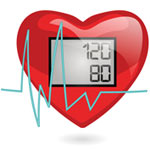Whats Really To Blame For Your Bad Mood

Lack of patience, irritability and feeling like crying for no particular reason...sound familiar? Bad moods can seem to come on with no warning, bringing with them a complexity of emotions. They often leave you feeling depressed, frustrated or just plain angry. Perhaps the worst thing about bad moods is the damage they can cause to close relationships. Would you want to be around someone who is constantly lashing out or bursting into tears for no apparent reason? Well what if that person is you?
It’s natural to experience negative emotions every now and then. In fact, reacting with sorrow or frustration to a negative situation can be healthy and appropriate in the right setting. However, some bad moods aren’t simply the result of an unfortunate event. Sometimes a bad mood comes on because you choose to feel that way, but that means you can stop yourself from getting into those kinds of moods.

For example, do you ever find yourself so agitated that you want to tell off an annoying coworker? Are you all too often feeling listless and grumpy in the middle of the day? If so, then lack of sleep could be to blame. Sleep is what regenerates you, both physically and mentally.
Studies have shown that people who don’t get enough sleep are overall less satisfied with their lives. They tend to be more irritable and suffer more bad moods. On the other hand, those who get seven to eight hours of sleep a night regularly report feeling more contented and able to take on challenges more effectively.
Lack of sleep alters people’s moods leaving them vulnerable to stress, anxiety and impatience. When the body hasn’t had enough rest it’s more difficult to remain focused, to exercise and even to make healthy food choices.
Just how much sleep you need depends on several factors including your age and activity level. A safe amount is seven to eight hours of sleep a night. If you have trouble falling asleep at night, try doing relaxing activities before bed. Winding down first can make it easier to fall asleep. Avoid watching TV or looking at your phone in bed. This will keep you from losing track of time and staying up too late.
You may also feel cranky when your body is simply not getting the proper nutrition it needs. The food you eat is what fuels the body and mind. Don’t put junk in your body and expect it to run well. Bad diet choices can have numerous negative effects on your health, including bad moods.
In addition, if you eat a lot of sugary foods, you might feel a short burst of energy or a sugar high, but ultimately your body will have a sugar crash. Sugar causes a rise in blood glucose which in turn causes an insulin spike. Once glucose levels return to normal, energy levels can plummet which can lead to grumpiness and fatigue. Keep in mind high levels of sugar aren’t limited to just deserts. Read labels carefully and limit any processed foods high in sugar.
You may also experience agitation when drinking your favorite caffeinated drink. Do you continuously drink coffee or soda throughout the day to boost your energy level? Most avid coffee drinkers consume more than a cup per day. Soda drinkers can consume anywhere from twice to ten times that much. Caffeine is a stimulant and it’s easy to get addicted to the quick boost it gives you. Each time you indulge, however, you affect the adrenaline centers of your brain, triggering anxiety and irritability.
Being hungry also makes you irritable, therefore, avoid missing meals. Eating every four to five hours will help your blood sugar levels remain steady. Steady blood sugar levels help stabilize your mood.
Did you inherit your bad mood? It may sound silly, but some people believe they inherited from their parents a tendency to get into bad moods. Temperament can be tricky. On one hand, some people do inherit tendencies towards depression or anxiety. These are real conditions that require more than positive thinking to treat. However, some bad moods are simply from conditioned responses, often created during childhood.
Conditioned responses are learned responses to a stimulus. For example, if you were stuck in an elevator you might develop a fear of riding in them. This is a conditioned response. Children learn how to react to stimulus from witnessing and imitating adult behavior. If you grew up with a moody adult who responded to situations with fear, frustration or anger, it may still affect your moods today.
There is good news in that realizing your bad moods come from conditioned responses is the first step in overcoming negative responses and learning to react more positively.
It’s common to blame bad moods on hormonal changes in the body...especially for women. Previous research in the effect of hormones on mood suggested a connection between estrogen and depression. However, a more recent study suggests that hormonal swings play more of a role in mood than estrogen levels.
Women aren’t the only ones who are subject to hormone cycles that may affect mood. Men may also experience hormonal changes that affect their moods. For example, testosterone levels fluctuate throughout the day and can change every fifteen to twenty minutes. Men might be subject to negative feelings or bad moods that come in uncontrolled cycles and leave them irritable, depressed or flat. The verdict is still out on just how much influence hormonal cycles have over mood in women and in men.
You might also be interested in...
-
 6 Foods That Feed Your Brain
6 Foods That Feed Your Brain
-
 6 Things To Give Up This Year
6 Things To Give Up This Year
-
 7 Common Relationship Deal-Breakers
7 Common Relationship Deal-Breakers
-
 7 Facts Women Should Know About Heart Disease
7 Facts Women Should Know About Heart Disease
-
 When You Already Feel Like Giving Up On Your Resolutions
When You Already Feel Like Giving Up On Your Resolutions
-
 Amazing Tips To Help You Get Through Allergy Season
Amazing Tips To Help You Get Through Allergy Season
-
 Anti-Aging Tips And Tricks
Anti-Aging Tips And Tricks
-
 Are Protein Shakes A Healthy Choice?
Are Protein Shakes A Healthy Choice?
-
 Are We More Stressed Than the Rest of the World
Are We More Stressed Than the Rest of the World
-
 Are You Ruining Your Relationship
Are You Ruining Your Relationship
-
 Are You Socially Awkward?
Are You Socially Awkward?
-
 Attitude Of Gratitude
Attitude Of Gratitude
-
 Beating Work Burnout is Easier than You Think
Beating Work Burnout is Easier than You Think
-
 Benefits Of Yoga And Meditation
Benefits Of Yoga And Meditation
-
 Beware Of Relationship Killers
Beware Of Relationship Killers
-
 Big Cities Surprisingly Great for Outdoorsy People
Big Cities Surprisingly Great for Outdoorsy People
-
 How To Boost Your Self Confidence
How To Boost Your Self Confidence
-
 Can Saying You’re Sorry Save Your Life?
Can Saying You’re Sorry Save Your Life?
-
 Can White Wines Be Healthy Too
Can White Wines Be Healthy Too
-
 Changing Careers In Your 40s
Changing Careers In Your 40s
-
 Divorced, But Are You Ready To Start Dating Again?
Divorced, But Are You Ready To Start Dating Again?
-
 Do You Fight Like Other Couples?
Do You Fight Like Other Couples?
-
 When you don't have a green thumb
When you don't have a green thumb
-
 8 PreWorkout Meals To Maximize Results
8 PreWorkout Meals To Maximize Results
-
 Financial Benefits Of Co-Habitation vs Marriage
Financial Benefits Of Co-Habitation vs Marriage
-
 Financial Tips To Follow During And After Divorce
Financial Tips To Follow During And After Divorce
-
 Five Ways To Lead A Regret-Free Life
Five Ways To Lead A Regret-Free Life
-
 Why Your Friends Should Be Jealous If You’re 30-Something And Single
Why Your Friends Should Be Jealous If You’re 30-Something And Single
-
 Can A Full Moon Really Affect People?
Can A Full Moon Really Affect People?
-
 Getting a Life Insurance Quote Without Getting a Medical Exam
Getting a Life Insurance Quote Without Getting a Medical Exam
-
 Health Benefits Of Almond Milk
Health Benefits Of Almond Milk
-
 The Health Benefits Of Avocado
The Health Benefits Of Avocado
-
 Health Benefits Of Cinnamon
Health Benefits Of Cinnamon
-
 How To Choose A Multivitamin?
How To Choose A Multivitamin?
-
 How To Make The New Year The Best One Yet
How To Make The New Year The Best One Yet
-
 How To Prepare For Your Next Interview
How To Prepare For Your Next Interview
-
 Is a Co-worker Making You Hate Your Job?
Is a Co-worker Making You Hate Your Job?
-
 Is The Ketogenic Diet Safe?
Is The Ketogenic Diet Safe?
-
 Is Music The Antidote For Depression
Is Music The Antidote For Depression
-
 Is Your Diet Making You Feel More Stress?
Is Your Diet Making You Feel More Stress?
-
 How To Keep Your Facebook Safe From Scammers
How To Keep Your Facebook Safe From Scammers
-
 Life Insurance Companies Offer Protection
Life Insurance Companies Offer Protection
-
 Living With Fibromyalgia
Living With Fibromyalgia
-
 How To Look Better Than Ever At 40
How To Look Better Than Ever At 40
-
 More Big Cities Surprisingly Great for Outdoorsy People
More Big Cities Surprisingly Great for Outdoorsy People
-
 Natural Remedies For Acid Reflux
Natural Remedies For Acid Reflux
-
 No Medical Exam Life Insurance—Simple Application
No Medical Exam Life Insurance—Simple Application
-
 10 Olympic Sports That Didn’t Make the Cut
10 Olympic Sports That Didn’t Make the Cut
-
 Outrageous Facts about U.S. Presidents
Outrageous Facts about U.S. Presidents
-
 Ovarian Cancer--The Silent Killer
Ovarian Cancer--The Silent Killer
-
 Overcoming Frustration
Overcoming Frustration
-
 How To Get Relief From Credit Card Debt
How To Get Relief From Credit Card Debt
-
 Is There A Risk of Heart Disease Due To Drinking?
Is There A Risk of Heart Disease Due To Drinking?
-
 Shocking Food Facts that May Change the Way You Eat
Shocking Food Facts that May Change the Way You Eat
-
 Sick Of Running? 5 Cardio Routines You Should Try Instead
Sick Of Running? 5 Cardio Routines You Should Try Instead
-
 Smart Tips for Getting Paid What You Really Deserve
Smart Tips for Getting Paid What You Really Deserve
-
 Strange Laws You Don't Even Know You're Breaking
Strange Laws You Don't Even Know You're Breaking
-
 The Singles’ Guide To Life Insurance
The Singles’ Guide To Life Insurance
-
 Things To Remember When Buying Life Insurance
Things To Remember When Buying Life Insurance
-
 Top 5 Things You Need To Know About Life Insurance
Top 5 Things You Need To Know About Life Insurance
-
 Top 6 Factors That Destroy Your Credit Score
Top 6 Factors That Destroy Your Credit Score
-
 Top Ten Health Tips For Active Women Over 50
Top Ten Health Tips For Active Women Over 50
-
 Treating Menopause Symptoms With Alternative Medicine
Treating Menopause Symptoms With Alternative Medicine
-
 Want To Know How Your Interview Went? Think Of It Like A First Date…
Want To Know How Your Interview Went? Think Of It Like A First Date…
-
 What Every Woman Should Know About Breast Cancer
What Every Woman Should Know About Breast Cancer
-
 What Is Ruining Your Workout
What Is Ruining Your Workout
-
 What Most 30–Somethings Wish They’d Known in Their 20s
What Most 30–Somethings Wish They’d Known in Their 20s
-
 Whats Really To Blame For Your Bad Mood
Whats Really To Blame For Your Bad Mood
-
 Why You Keep Overeating and How to Stop
Why You Keep Overeating and How to Stop
-
 Why You Need To Talk About Life Insurance
Why You Need To Talk About Life Insurance
-
 You Can't Afford to Believe These Women's Health Myths
You Can't Afford to Believe These Women's Health Myths
-
 5 Plants To Keep In Your Bedroom
5 Plants To Keep In Your Bedroom
-
 Five Simple Ways To Protect Your Retirement
Five Simple Ways To Protect Your Retirement
-
 The Best Ways To Cover Gray Hair
The Best Ways To Cover Gray Hair
-
 5 Hidden Causes Of High Blood Pressure
5 Hidden Causes Of High Blood Pressure
-
 10 Steps To Get Through The Holidays Stress-Free
10 Steps To Get Through The Holidays Stress-Free
-
 5 Ways To Break A Bad Habit
5 Ways To Break A Bad Habit
-
 The 5 Benefits Of A Veterans Home Loan
The 5 Benefits Of A Veterans Home Loan
-
 Top 5 Prevention Tips For Heart Disease And Stroke
Top 5 Prevention Tips For Heart Disease And Stroke
-
 5 Surprising Facts About Low-Carb Diets
5 Surprising Facts About Low-Carb Diets
-
 7 Ways To Live A Happier Life
7 Ways To Live A Happier Life
-
 6 Tips To Be More Productive
6 Tips To Be More Productive
-
 7 Steps To Help Someone Who Is Grieving
7 Steps To Help Someone Who Is Grieving
-
 4 Reasons Why Your Diet Resolutions May Be Counterproductive
4 Reasons Why Your Diet Resolutions May Be Counterproductive
-
 Deciding On Braces After 40
Deciding On Braces After 40
-
 Why A Massage May Be Helpful For Back Pain
Why A Massage May Be Helpful For Back Pain
-
 How To Have Self-Compassion
How To Have Self-Compassion
-
 How To Stay Productive When You Don’t Feel Like it
How To Stay Productive When You Don’t Feel Like it
-
 Foods To Eat When You’re Feeling Stressed
Foods To Eat When You’re Feeling Stressed
-
 How Helping Others Can Make You Happier
How Helping Others Can Make You Happier
-
 Why You Don’t Have To Fear Fat When Dieting
Why You Don’t Have To Fear Fat When Dieting
-
 6 Things You Should Do To Live Without Regret
6 Things You Should Do To Live Without Regret
-
 How To Create Your Own Happiness
How To Create Your Own Happiness
-
 How To Get Immediate Stress Relief
How To Get Immediate Stress Relief
-
 Why It May Be Time To Make Some Changes
Why It May Be Time To Make Some Changes
-
 Why You May Want To Sleep On Your Left Side
Why You May Want To Sleep On Your Left Side
-
 4 Health Symptoms You Should Never Ignore
4 Health Symptoms You Should Never Ignore
-
 Dos And Don’ts Of Job Interviews
Dos And Don’ts Of Job Interviews
-
 How You Can Benefit From Showing A Little Love
How You Can Benefit From Showing A Little Love
-
 Can Debt Affect Your Health?
Can Debt Affect Your Health?
-
 What Women In Their 50s Know
What Women In Their 50s Know
-
 Hidden Reasons For Night Sweats
Hidden Reasons For Night Sweats
-
 5 Simple Lung Cancer Prevention Tips
5 Simple Lung Cancer Prevention Tips
-
 Why You Should Get Out Of Your Comfort Zone Now
Why You Should Get Out Of Your Comfort Zone Now
-
 7 Tips To Keep Runners Safe
7 Tips To Keep Runners Safe
-
 How To Stop Emotional Eating Now
How To Stop Emotional Eating Now
-
 Reach Your Potential In 4 Steps
Reach Your Potential In 4 Steps
-
 5 Ultimate Weight Loss Hacks
5 Ultimate Weight Loss Hacks
-
 Can Social Media Help With Weight Loss
Can Social Media Help With Weight Loss
-
 How A Good Impression Can Change Everything
How A Good Impression Can Change Everything
-
 Must-Know Travel Tips If You Want To Stay Safe
Must-Know Travel Tips If You Want To Stay Safe
-
 Three New Ways To Make Big Changes
Three New Ways To Make Big Changes
-
 The Hidden Benefits Of Ginger
The Hidden Benefits Of Ginger
-
 5 Tricks To Slim Down Fast
5 Tricks To Slim Down Fast
-
 How To Finally Wake Up Better
How To Finally Wake Up Better
-
 5 Chemical-Free Ways To Keep Skin Young
5 Chemical-Free Ways To Keep Skin Young
-
 The Secret Benefits Of Salt
The Secret Benefits Of Salt
-
 Why Be An Organ Donor?
Why Be An Organ Donor?
-
 How To Relieve Stomach Ulcers Fast
How To Relieve Stomach Ulcers Fast
-
 Disaster Relief Do’s And Don’ts
Disaster Relief Do’s And Don’ts
-
 How To Say Goodbye To A Loved One
How To Say Goodbye To A Loved One
-
 4 Tricks To Prevent A Cybercrime Attack
4 Tricks To Prevent A Cybercrime Attack
-
 The Dos And Don’ts Of Getting A Tattoo
The Dos And Don’ts Of Getting A Tattoo
-
 What To Do When Hearing Loss Strikes
What To Do When Hearing Loss Strikes
-
 How Auto Ship Programs Keep Scamming People
How Auto Ship Programs Keep Scamming People
-
 How To Decrease Stress And Increase Productivity
How To Decrease Stress And Increase Productivity
-
 Unique Relief For Chronic Neck Pain
Unique Relief For Chronic Neck Pain
-
 Ransomware–What It Is And How To Avoid Attack
Ransomware–What It Is And How To Avoid Attack
-
 Five Reasons To Drink More Tea
Five Reasons To Drink More Tea
-
 5 Major Life Events That May Require Life Insurance
5 Major Life Events That May Require Life Insurance
-
 6 Reasons Newlyweds Should Consider Life Insurance
6 Reasons Newlyweds Should Consider Life Insurance
-
 How Long Does It Take to Get a Life Insurance Policy?
How Long Does It Take to Get a Life Insurance Policy?
-
 How Long Does It Take to Get Life Insurance Money?
How Long Does It Take to Get Life Insurance Money?
-
 What You Need To Know About Mortgage Assistance Programs
What You Need To Know About Mortgage Assistance Programs
-
 How to Build a Better Resume: 7 Helpful Tips
How to Build a Better Resume: 7 Helpful Tips
-
 4 Things Women Should Do During Breast Cancer Awareness Month
4 Things Women Should Do During Breast Cancer Awareness Month
-
 10 Ways to Get More Out of Life
10 Ways to Get More Out of Life
-
 Who Owns Globe Life and Accident Insurance Company?
Who Owns Globe Life and Accident Insurance Company?
-
 Can I Buy Life Insurance Online?
Can I Buy Life Insurance Online?
-
 Cancelling My Life Insurance. What are My Options?
Cancelling My Life Insurance. What are My Options?
-
 Can Life Insurance be Purchased on Anyone by Anyone?
Can Life Insurance be Purchased on Anyone by Anyone?
-
 Understanding Insurance Claims: Complex Causes of Accidental Death
Understanding Insurance Claims: Complex Causes of Accidental Death
-
 How Can I Sell My Life Insurance Policy?
How Can I Sell My Life Insurance Policy?
-
 Checking Your Insurance Coverage Before Traveling Abroad: What to Know
Checking Your Insurance Coverage Before Traveling Abroad: What to Know
-
 Can I Convert My Term Life Insurance into a Whole Life Insurance Policy?
Can I Convert My Term Life Insurance into a Whole Life Insurance Policy?
-
 Should I Buy Enough Life Insurance to Pay Off My Mortgage?
Should I Buy Enough Life Insurance to Pay Off My Mortgage?
-
 What Is Whole Life Insurance?
What Is Whole Life Insurance?
-
 Beyond Active Duty: Life Insurance Options for US Veterans
Beyond Active Duty: Life Insurance Options for US Veterans
-
 The Risk of Having a Stroke for People Under 40
The Risk of Having a Stroke for People Under 40
-
 Is Drowning Considered an Accidental Death for Insurance Purposes?
Is Drowning Considered an Accidental Death for Insurance Purposes?
-
 How Long is a Term Life Insurance Policy?
How Long is a Term Life Insurance Policy?
-
 Tips for Choosing a Life Insurance Beneficiary
Tips for Choosing a Life Insurance Beneficiary

 Insurance products are available in New York from
Insurance products are available in New York from  Insurance products are available in your state from
Insurance products are available in your state from 





























































































































































